In our previous posts, you learned how to install Sonarr in Docker, a service that allows you to automate your TV show download by creating watch lists and automatically download them when they are available. Radarr is a similar service, made specifically for movies. You just add your wanted movies and Radarr will automatically search them and download the best quality. Radarr is a breath of fresh air for users that were looking for an alternative to Couchpotato and by having a really similar interface with Sonarr, new users will feel right at home. If i got your interest, continue reading and learn how you can install Radarr using Docker in just a few easy steps.
Must Read: Docker Media Server Ubuntu: Compose for 23 Awesome Apps
If you do not know what Docker is, be sure to read our What is Docker guide and comparison to VirtualBox in advance and get familiarized with the terms used. [Read: What is Usenet and why is it better than Torrents?]
Table of Contents
Install Radarr using Docker
Before starting the Docker Radarr installation guide, make sure to follow our previous guides where you can learn to Install Docker on Ubuntu, Windows 10 Pro/Ent, and Windows 7 and 8.
You can install Radarr using Docker in a new Docker container from scratch. But, ready-made containers are already available for several apps on Docker Hub. So all you need to do is pull those containers and install. If you are ready, open Docker command prompt and get ready to setup Radarr in Docker.
| Provider | Rating | Features | Monthly | Yearly |
|---|---|---|---|---|
| Newshosting | >3000 days, unlimited, SSL, VPN | $9.99 |
$99.99 ($8.33 / month) |
|
| UsenetServer | >3000 days, unlimited, SSL, VPN | $9.99 |
$99.99 ($8.33 / month) |
|
| Eweka | >3000 days, unlimited, SSL, EU Servers | €7,50 (Special!!!) | ||
| For more plans that may fit your needs please read our Usenet plan selection guide. | ||||
1. Radarr Pull Command
To install Radarr using Docker, you will first need to grab the latest version of Radarr container from the linuxserver Docker Hub. LinuxServer is a Docker repository with several HTPC and home server app containers.
docker pull linuxserver/radarr
Pull the ready-made Radarr docker container using the above command.
2. Set Radarr Configuration Parameters in Docker
After pulling the container with the latest version of Radarr, we need to configure the usage parameters such as download folders, port number, etc. for the service. Copy all lines in the code block below (it is one single command) and paste it into docker prompt.
sudo docker create --name=radarr \ --restart=always \ -v /home/docker/radarr/config:/config \ -v /home/docker/radarr/downloads:/downloads \ -v /home/docker/radarr/movies:/movies \ -e PGID=1001 -e PUID=1001 \ -e TZ=Europe/London \ -p 7878:7878 \ linuxserver/radarr
While you can just copy and paste the settings mentioned above, I recommend that you understand each parameter using the description below and customize it to your liking, in order to setup Radarr in Docker. Therefore, before issuing the above docker command, change certain parameters (eg. port number, folders, etc.) to fit your situation.
sudo docker create --name=radarr \- Creates a new docker container with the name "radarr"--restart=always \- Starts the Radarr container automatically during boot. If you don't want the container to be started automatically, you can skip this command.-v /home/docker/radarr/config:/config \- Specifies the location of the Radarr config files. In this case, the config folder is located in /home/docker/radarr/ directory.-v /home/docker/radarr/downloads:/downloads \- Specifies the location of the downloads folder. In this case, the downloads folder is located in /home/docker/radarr/ directory.-v /home/docker/radarr/movies:/movies \- Specifies the location of the movies folder. In this case, the downloads folder is located in /home/docker/radarr/ directory.-e PGID=1001 -e PUID=1001 \- Specifies the user id in order to minimize permission issues that can arise between the host OS (Ubuntu) and the container.-e TZ=Europe/London \- Specifies the timezone information. You can check your timezone by following this link.-p 5050:5050 \- Specifies the ports used by Radarr. In this case, the port is 5050:5050.
3. Start and Stop Radarr Container in Docker
If you used the correct parameters, you can go ahead and start the Radarr container you have just created, using the following command.
sudo docker start radarr
After starting the Radarr Docker container, you will be able to open the web interface on port 7878. In my case the ip is http://192.168.0.108:7878.
You can now start configuring Radarr by following the wizard. Try to fill in each of the settings as much as you can. This will improve the way Radarr works for you.
4. Updating Radarr in Docker
Radarr is now running in Docker and probably you are wondering how can you keep up to date with the latest bugfixes and features the Radarr developers do. All you need to do is check for updates regularly.
In order to do that, we need to click on the System icon, then click on the Updates tab. On this page, we can see the currently installed Radarr version and the available updates. By clicking on the blue Install Latest button, we can trigger the update to the latest version of Radarr. If you can't see any blue install button, then you are running the latest version. You don't need to worry about backups because Radarr will do a config backup before each update. When the update has been completed, you just need to reload Radarr and start enjoying the latest version.
Radarr is now installed in Docker. What to do next?
Congratulations! You managed to install Radarr using Docker successfully. Once Docker is setup, it is extremely simple to create and destroy containers with apps. If you want to be able to access the Radarr interface outside your home network, be sure to setup port forwarding on your router. You will have to forward the Radarr port to the local/internal IP address of the system with Docker installation.
Next, you can install Sonarr in Docker or Sickrage to manage your TV Show downloads (if you haven’t done that already). Check back soon to learn more about Docker and how you can install various other services in Docker containers.

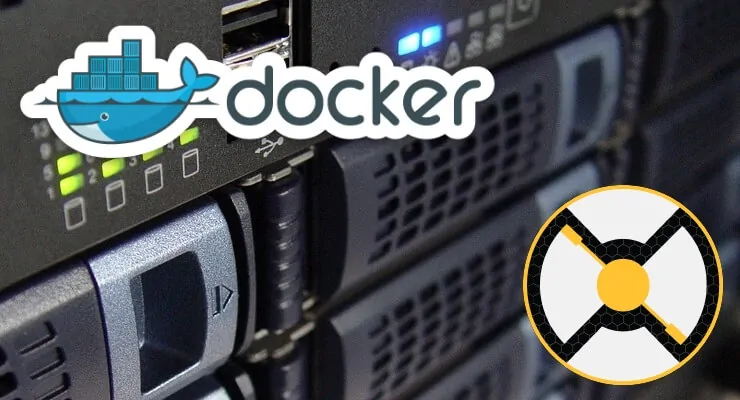
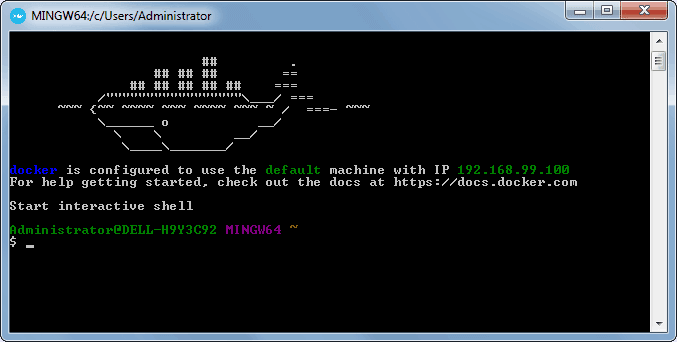
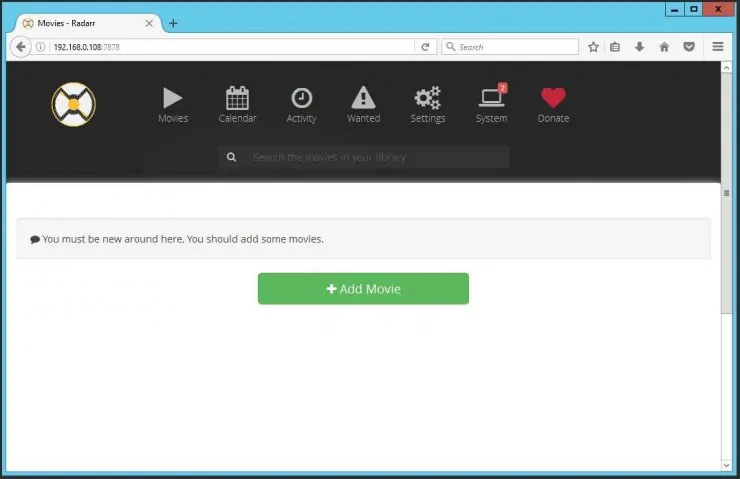

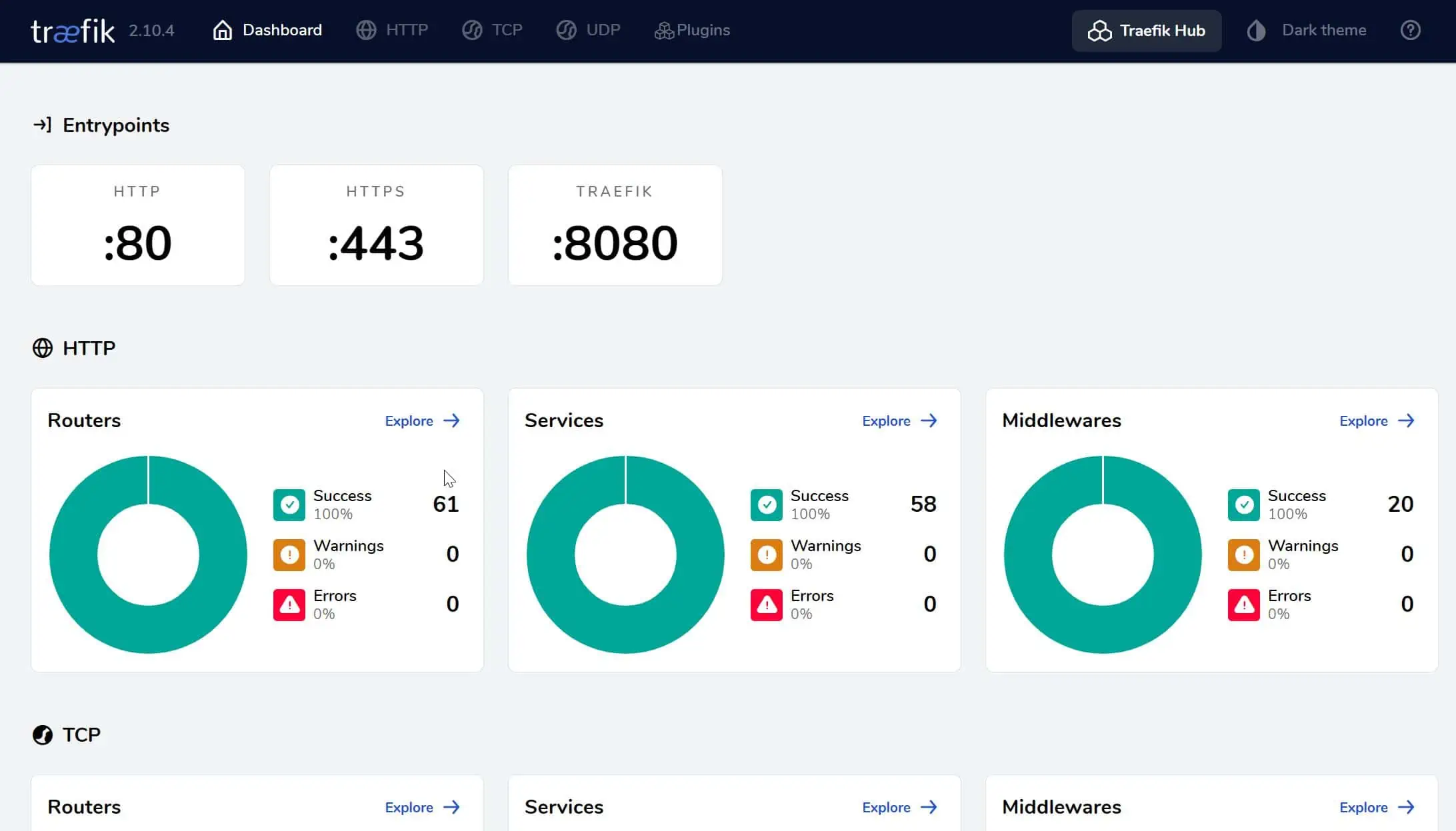
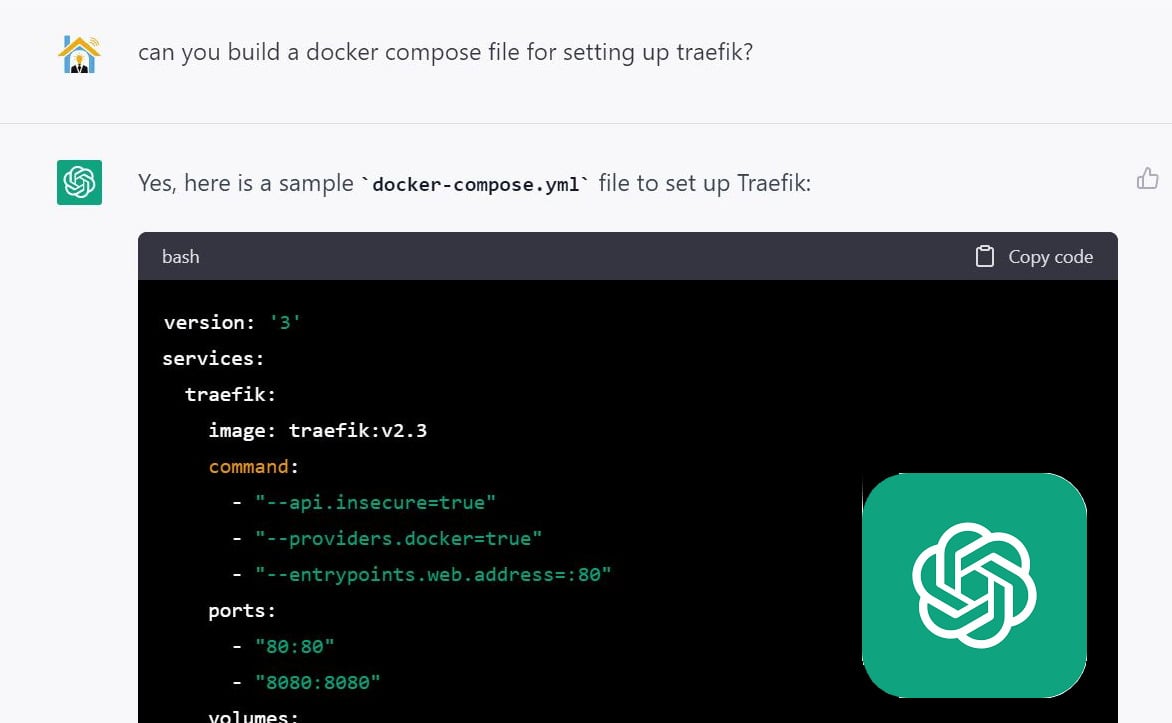
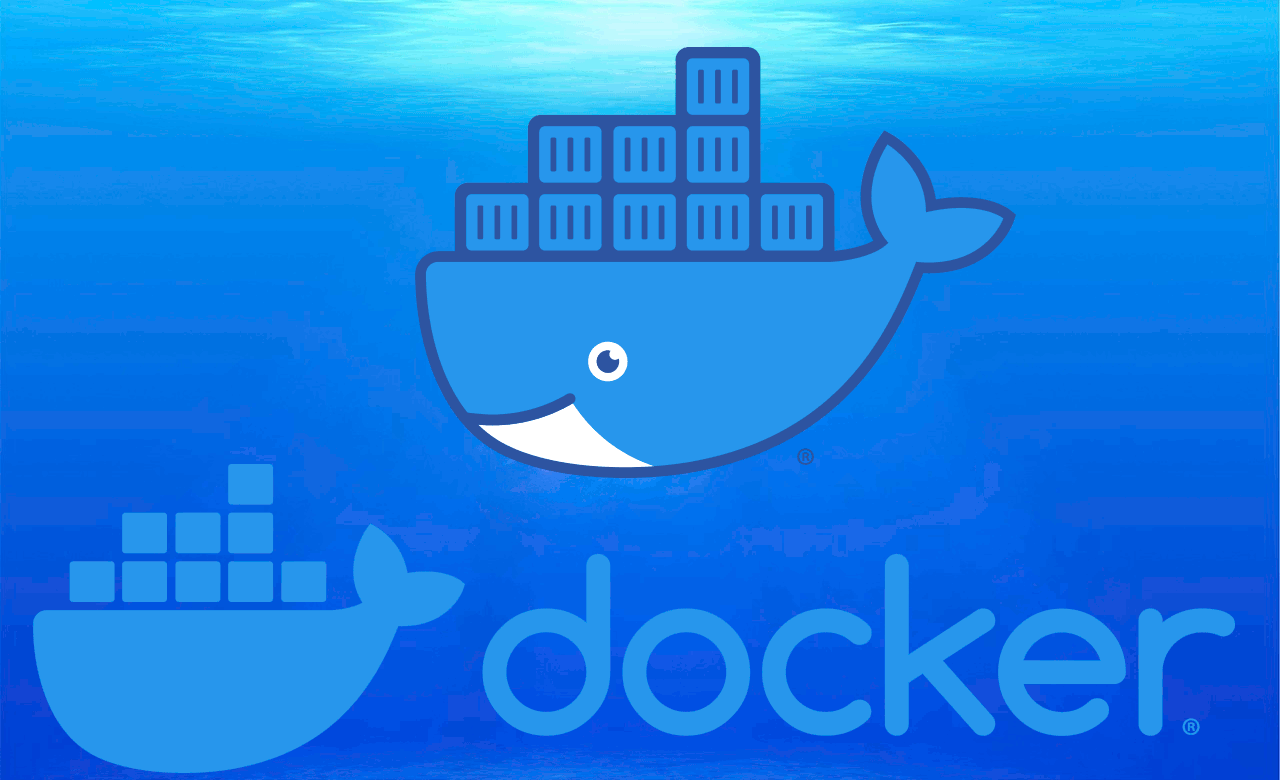
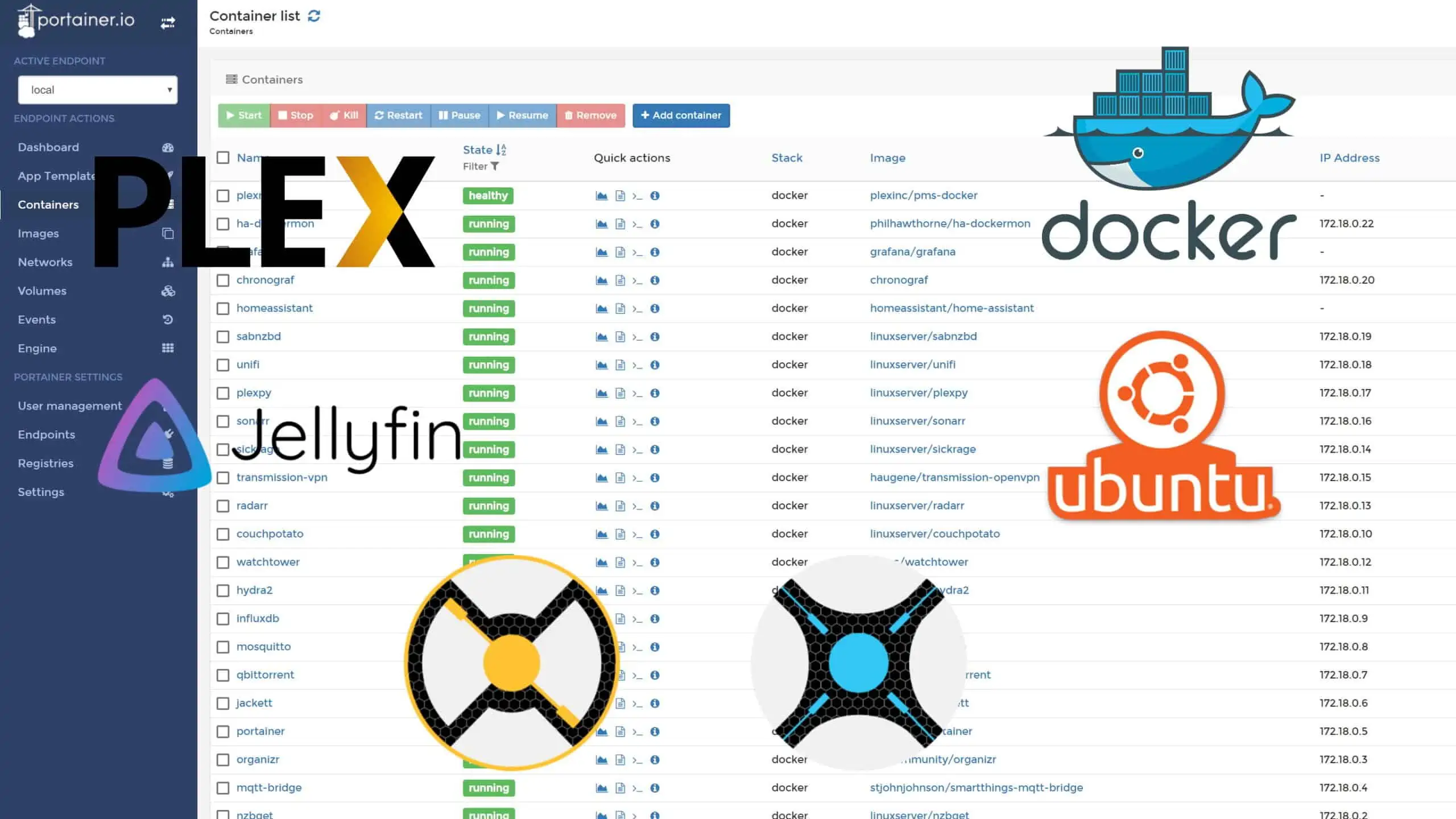
![Traefik Forward Auth Guide - Simple, Secure Google SSO [2022] OAuth Featured Image_final](https://www.smarthomebeginner.com/images/2019/10/OAuth-Featured-Image_final.jpg)
![Google OAuth Traefik Forward Auth [2024]: Most Convenient MFA Google Oauth](https://www.smarthomebeginner.com/images/2024/04/Docker-Series-07-Google-OAuth.png)